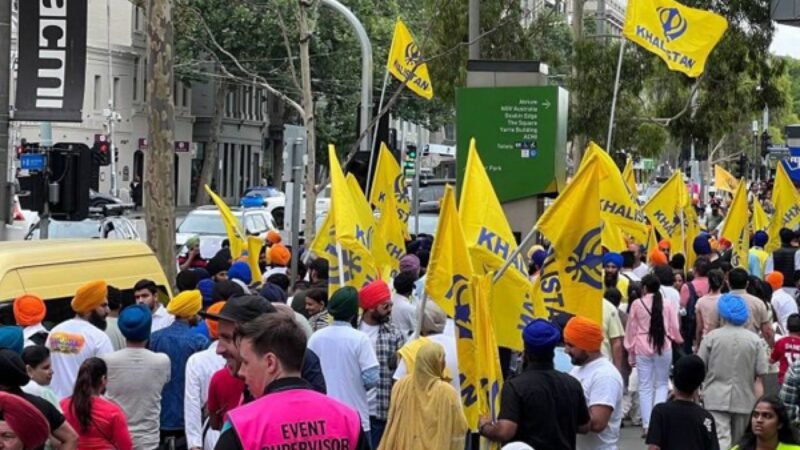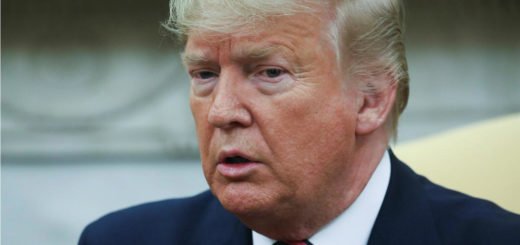Repeat Referendum Run in Sydney Runs Out of Steam

A large number of non-resident Sikhs in Australia, with their secessionist agenda of forming an independent Sikh state of Khalistan in the Indian Punjab, have been holding a series of ‘referendums on the issue under the garb of the worldwide organization, Sikhs for Justice. The so-called ‘Khalistan Referendum’ is an unofficial referendum organized by the Sikhs for Justice across multiple nations for the potential creation of an independent ‘Khalistan’ state within the territory of India. Interestingly, the movement is focused on the Indian Punjab, and not West Punjab province that lies in Pakistan.
The movement gathered momentum earlier this year spurred by the seditious acts and speeches of Amritpal Singh—aka Bhindranwale 2.0—who was arrested at Rode village in Moga district of Punjab on April 23. On Monday (January 30), tensions ran high within Australia’s large and burgeoning Indian diaspora with a spate of graffiti attacks on Hindu temples in Melbourne over the preceding two weeks. Two persons were injured and as many Sikhs were detained when the so-called ‘Punjab independence referendum’ ended in two separate scrimmages between sword-wielding Khalistani activists and pro-India demonstrators—many of them Hindus—in the coastal capital of Australia’s southeastern state of Victoria.
India has already expressed its concern to the Australian government urging it to curb the anti-India acts of Khalistani separatists, including targeting Hindu temples in that country. On May 23, Prime Minister Narendra Modi, during his Sydney visit that formed part of the third and last leg of his three-nation tour, on Wednesday (May 24), raised the issue of attacks on temples in Australia and activities of separatist elements with his Australian counterpart, Anthony Albanese. He said that even on that day, the two Heads of State had held discussions on the issue. Modi stressed that it was not at all acceptable to India that these (secessionist) elements should harm the warm and cordial ties between the two countries by their thoughts or actions.
The Australian Hindu Association (AHA), on its part, organized Melbourne’s first Australian Hindu Harmony Rally at Victoria’s Parliament House on Sunday (April 30) where chants of ‘Jai Shree Ram’ and ‘Har Har Mahadev’ rent the air demonstrating Palpable anger against inaction by the Victoria Police in prosecuting a single Federation Square Khalistani attacker.
Over 1,000 Australian Hindus hailing from Andhra Pradesh, Bihar, New Delhi, Gujarat, Haryana, Karnataka, Kerala, Punjab, Maharashtra, Telangana, Uttar Pradesh and elsewhere also took part in the Australian Hindu Harmony Rally on Sunday (March 26) which took part after the Laxminarayan Temple in Brisbane was attacked by Khalistanis. The rally saw a huge turnout of people from the Hindu community outraged at the attack on their religious institution, besides a convoy of more than 300 cars.
This Time, Sydney on Radar
The Khalistanis have been at it yet again…this time, with an eye on Sydney. But, time and again, they have come up against a blank wall as their plea to hold the so-called ‘referendum’ was rejected by one venue authority after another. This was the first time any Khalistan event in Australia was cancelled by the venue owners.
As of Saturday (June 3) night (Australian time), four prior venues had been cancelled. They tried multiple times from holding it at St George School, Cropley House, Blacktown Leisure Centre (May 12), Sydney Masonic Centre (May 27), and so forth. The Minchinbury venue was the fifth and latest. The Hindu association claimed that had also been cancelled as they had brought pressure to bear upon the authorities.
The Blacktown Council had cancelled the Blacktown Leisure Centre venue plea citing security risks to the council staff, assets and the general public. They also removed Khalistani posters illegally displayed in public places without permission. The Khalistanis staged a protest outside the council office regarding this.
Then, they tried the Sydney Masonic Centre, which is a private venue. Due to pressure from ordinary, local Hindus, the Masonic Centre staff spoke to the NSW Police as they were not fully aware who and what the Khalistanis were or stood for. Following police advice, they cancelled the event invite. The reason put forward was security risk.
Preparations by Khalistani cult members, however, went on unimpeded for what they claimed was a ‘lawful’ event. A few possible venues were wedding and function centres in Sydney owned by Sikhs, some of whom are Khalistani supporters. They planned to hold the referendum at a neutral venue especially as the security agencies were keeping tabs.
Finally, it was shifted to a construction site in Sydney—also in Minchinbury. On June 2, the Khalistanis announced the new location, 24 Sterling Road, Minchinbury, NSW. However, the AHA got confirmation from the real estate agency that no permission had been provided, so the event was illegal. The owners and managing agents of 24 Sterling Road, Minchinbury, construction firm Akura Pty Ltd, maintained that they had given no permission to hold the Sunday event. The firm leases out commercial lands to tenants on a temporary basis for 6-12 months’ contract. So, 24 Sterling Road had been leased out to some ‘trucking company’ and that ‘trucking company’ was one of the organizers of the event.
On Sunday (June 4), the Khalistanis claimed “a huge turnout and attempts by some Hindus to disrupt the proceedings”. They said the police present at the venue turned away these Hindus and voting went on peacefully throughout the day under the supervision of the Independent Punjab Referendum Commission which is supervising the referendum voting across the world. Initially, they did not put a definite figure to the turnout, but later hinted that 31,000 people may have attended—fewer than half the number at the Melbourne event. Several WhatsApp queries put forward to the organizers of the event drew no response.
Akura Pty Ltd later said in a statement, “Our tenant organized this event without consulting us and we would not have agreed to this event being held on the site had we known about it in advance. We are disappointed that the land was not used for the purposes we’d agreed to, and we apologise to the community for any disruption. We have plans to develop the site and won’t be extending the lease which ends on July 9.”
The AHA, on its part, claimed that public Sikh voter participation was abysmally low and the turnout comprised largely the organizers and their support network. The AHA, too, could not put any numbers to the turnout.
Pranesh Prasad, a lawyer and author based in Australia, says “Note that all the pressures brought to bear upon the venues have been from local Hindus. There has been no involvement of India’s Ministry of External Affairs, the Indian Embassy in Canberra, or the Consulate in Sydney. Although, at the broader level, PM Modi has made supporting statements and Australian PM Albanese has also condemned the temple attacks, it cannot be said that the events were cancelled due to the impact of Modi’s visit. The federal Australian government, especially the Department of Foreign Affairs and Trade has had no role to play, either.
“The event was cancelled, presumably because the state-level NSW police seems to have learnt their lesson from the public brawl and violence that happened during the Melbourne referendum and do not want a replay in Sydney. Let’s say they were reminded by local Hindus of the risk at the right time.”
In Conclusion
Prasad puts a poser: “So, what does the low turnout mean for the Khalistanis in Australia? Don’t forget that the Melbourne referendum was a huge success with a turnout of roughly 65,000 people. It was also a huge shock and a wake-up call to Indians here. To the Australian government and some local leaders, it may have looked like a vote bank that could be nurtured and leveraged. But the game turned when Khalistan poster-boy Amritpal Singh was found to be a mere imposter. His arrest has taken the movement back here.
“Fence-sitters within the Sikh community now know that, while the so-called referendum is not only non-binding and illegal, it is also not a step towards self-determination but towards self-destruction. They know it is sponsored by a bankrupt Pakistan, for the focus is Indian Punjab and not West Punjab. They also know that these organizers have no guts to do a referendum in India and can only make mischief from their safe havens in Anglo countries.
“The Khalistanis, as of date, do have some sort of government-level support as the authorities and some political leaders have been saying that the referendum is an exercise in free speech. But they forget that free speech isn’t absolute and that hate speech is not free speech. The issue will be around for some time,” Prasad adds.



















